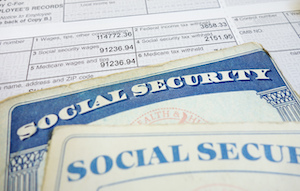The Social Security Administration (SSA) on March 29 announced that it is slashing the default overpayment withholding rate for Social Security beneficiaries from 100% to 10% or $10, whichever is greater. 
The change went into effect on March 25, 2024. But it applies to new overpayments, not those that occurred before that date.
The change comes in the wake of a comprehensive review of SSA overpayment policies and procedures that the agency embarked upon in October 2023. Then-Acting Commissioner of Social Security Kilolo Kijakazi, in announcing the review, said that “Despite our high accuracy rates, I am putting together a team to review our overpayment policies and procedures to further improve how we serve our customers.”
What the Change Means
Now, the SSA will collect 10% (or $10, whichever is greater) of a total monthly Social Security benefit to recover an overpayment from a beneficiary, instead of collecting 100% as had been the policy. There will be limited exceptions to this change, however—such as when an overpayment resulted from fraud.
When an overpayment has taken place, the SSA is required to seek repayment. But the SSA says that it recognizes that repaying overpaid Social Security benefits can create hardship for beneficiaries.
Social Security Commissioner Martin O’Malley in a press release hailed the move as “a critically important step” towards SSA’s goal of ensuring that its policies concerning overpayments “are fair, equitable, and do not unduly harm anyone.” He added, “It’s unconscionable that someone would find themselves facing homelessness or unable to pay bills, because Social Security withheld their entire payment for recovery of an overpayment.”
The SSA adds that beneficiaries who have been determined to have received an overpayment can appeal the overpayment decision or the amount of the repayment they are required to make. Appellants can ask the SSA to waive collection of the overpayment, if they believe it was not their fault and can’t afford to pay it back. The SSA also notes that it does not pursue recoveries while an initial appeal or waiver is pending.
- Log in to post comments
